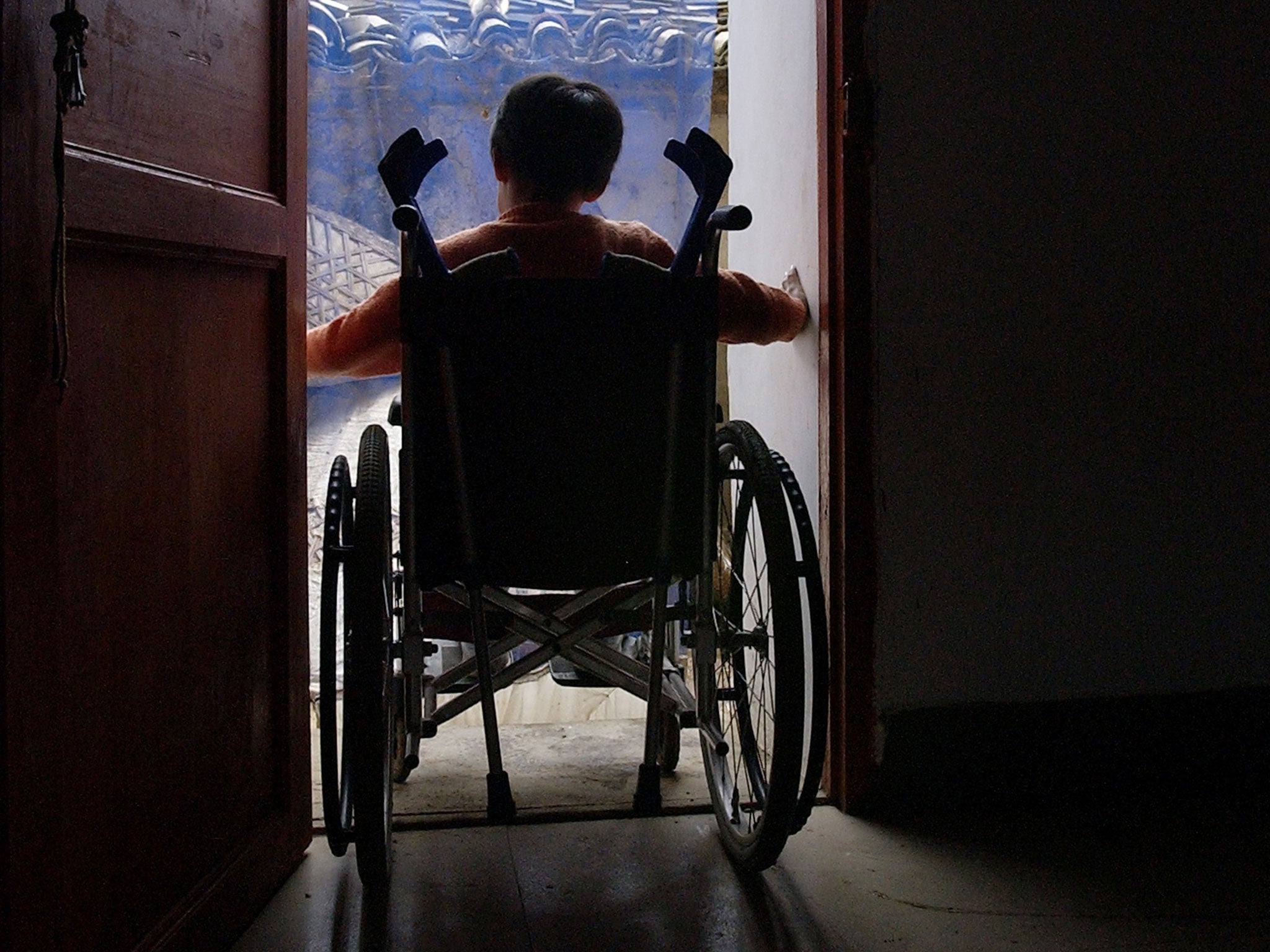Your support helps us to tell the story
From reproductive rights to climate change to Big Tech, The Independent is on the ground when the story is developing. Whether it's investigating the financials of Elon Musk's pro-Trump PAC or producing our latest documentary, 'The A Word', which shines a light on the American women fighting for reproductive rights, we know how important it is to parse out the facts from the messaging.
At such a critical moment in US history, we need reporters on the ground. Your donation allows us to keep sending journalists to speak to both sides of the story.
The Independent is trusted by Americans across the entire political spectrum. And unlike many other quality news outlets, we choose not to lock Americans out of our reporting and analysis with paywalls. We believe quality journalism should be available to everyone, paid for by those who can afford it.
Your support makes all the difference.Prosecutions for disability hate crimes surged by more than 40 per cent last year compared to the year before, official figures show.
The Attorney General’s Office released statistics showing that the Crown Prosecution Service completed 941 prosecutions for such crimes in 2015/16 compared to 666 in the previous year. Convictions were also up by a similar rate, from 503 to 707, also around a 40 per cent increase.
The Crown Prosecution Service said it was trying to push up rates of prosecution and conviction for such crimes to send out a message that they would be treated seriously.
“The rise in prosecutions and convictions for disability hate crime are a direct result of the improvements we have made," a spokesperson said. “This includes training for all CPS prosecutors on prosecuting disability hate crime and working closer with the victims of hate crime, the police and other agencies to secure convictions.
“This sends out a clear message that these crimes are treated seriously and will attract a higher sentence for those who are found or plead guilty.”
Baroness Meral Hussein-Ece, the Liberal Democrats’ equalities spokesperson, said it was good that crimes were being prosecuted but worrying that there was such a significant rise in the figures. “It is appalling to see such a sharp increase in the levels of disability hate crime and discrimination,” she said.
“While it is good to see that more people are being prosecuted we know that this is an area of underreporting. What’s needed is more support for victims to empower them to report these heinous crimes.”
Sarah Newton, the Minister for Vulnerability, Safeguarding and Countering Extremism said the Government was also pushing for more crimes to be reported.
“This Government is committed to building a Britain that works for everyone and we are clear that there is no excuse for hate crime of any form," she said. "We are determined to stamp it out and have published a new action plan which focuses on reducing hate crime, increasing reporting and improving support for victims.
"We also commissioned Her Majesty's Inspectorate of Constabulary to review the police’s response to the issue.
“I am pleased that more people are being prosecuted for disability hate crime – which has traditionally been underreported – but there is still more to do.”
The findings come after a report by the Equality and Human Rights Commission that warned that disabled children are almost twice as likely to be victims of crime as non-disabled children.
The Commission’s chair David Isaac said of the report: “These findings are a wake-up call that there is still much more that needs to change. We cannot hope to create a more inclusive society for future generations while disabled children continue to live in a climate of fear of victimisation.”
Peter Jenkins, the disability campaigns director for the charity Leonard Cheshire, said hate crimes against disabled people often had long-lasting effects.
“The impact of disability hate crime is devastating for disabled people and their families. Crimes against disabled people are often not even reported to the police because many victims don’t know who to talk to or how to report attacks,” he said.
“Victims of disability hate crime often continue to suffer long-lasting anxiety leaving them too scared to leave their homes.

Join our commenting forum
Join thought-provoking conversations, follow other Independent readers and see their replies
Comments